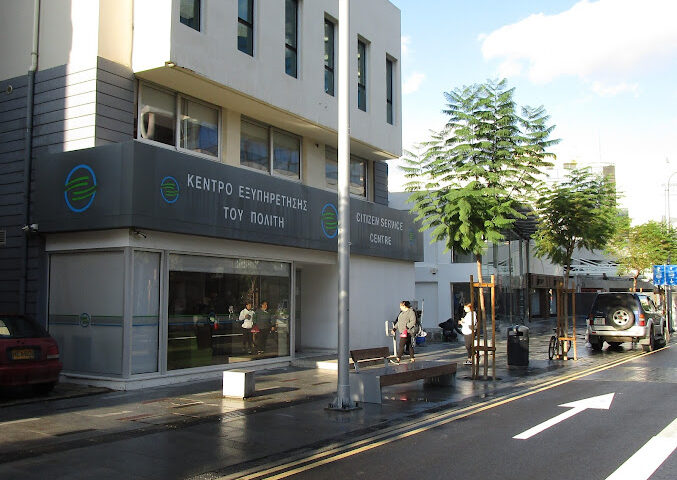Cash-rich banks are stockpiling properties as they turn to buy real estate linked to mortgages of defaulted borrowers as banking institutions dominate the property market.
After acquiring properties through debt to asset swaps with defaulted borrowers, banks are now turning to properties linked to non-performing loans, which they failed to foreclose through auction.
According to Central Bank data, banks bought 30% of properties they attempted to foreclose through auctions in 2019.
In 2018, Cyprus banks only bought 9% of properties they brought under the hammer. The data was sent by the Central Bank to parliament, which was then leaked to the press.
It shows that banks have bought one-tenth of all properties for which the owners were informed that their property was to be sold at auction under the foreclosure law.
Out of the 10,590 properties auctioned, 949 properties were acquired by mortgage lenders after the first auction failed.
The proportion of foreclosed properties that end up with the banks has increased significantly, as banks see their efforts to foreclose properties at auctions fail.
Banks have increased their success rate in selling off foreclosed properties, reaching 10.8% up until September 2019, but this is offset by the fact that fewer foreclosure notifications were sent out.
In the first nine months of 2019, 213 foreclosures were completed. Cyprus banks had sent out a total of 1,971 notices for properties to be foreclosed.
In 2018 the rate stood at a lower 5% with 203 properties foreclosed out of 4,038 notices sent out while in 2017 just 121 out of 2,625 properties were foreclosed (4.6%).
Furthermore, since 2015 a total of 10,590 notices have been sent out while banks have foreclosed just 557 of them, a success rate of 5.3%.
Bankers argue it’s an indication of the limited profitability of the divestiture framework, as banks appear to move into real estate purchases to close non-performing loans for which no other solution has been reached.
But on the other hand, it is also an indication that things are moving in a different direction than previous years.
As confirmed by financial sources, Cyprus banks have real estate portfolios comprising properties acquired through debt to asset swaps and auctions, worth over €2 bln.
“Properties being bought are then added to the bank’s property portfolio with dozens being sold online,” a banking source said.
Talking to the Financial Mirror, a banking source said that banks are making use of the option provided by the law, allowing them to buy the properties for which they initiated foreclosure procedures as a tool for reducing their NPLs.
“Being allowed to buy the property is one of the tools offered by the legal framework to mortgage lenders which is used as a last resort when a non-serviced mortgage loan receives no offers at auction.
These loans need to be removed from the banking system one way or another.”
Balance sheet
Buying the asset backing an NPL, allows the bank to remove the loan from its balance sheets, which means that banks will logistically rid themselves of NPLs, allowing them to make less provisions in the future.
This is not a choice favoured by banks, as they do not want to be burdened with acting as a real estate agent.
“Currently, having large property portfolios is already pushing banks’ operational costs upwards as they need to set up departments to handle the assets acquired,” said the source.
“Some are to be sold, while others will remain in the care of the bank until the properties are ready to be put back on the market.”
With banks extremely reluctant not to flood the market, real estate agents see this will result in banks having a large number of properties that they will need to maintain.
Panos Danos CEO of Danos / BNPRE Group told the Financial Mirror that banking institutions are turning to real estate consultants for help with managing their property portfolios.
“Whether they wanted to, or not, Cyprus banks have become real estate agents. They currently need an army of people to handle their portfolios, which also include old buildings which will need maintenance, and in some cases a good makeover,” said Danos.
The real estate consultant confirmed that banks are being careful not to overload the market which would send property prices down.
Danos noted that one of the difficulties banks will have while trying to sell property accumulated, is that Cyprus is a small market.
He does not expect to see interest from Real Estate Investment Trusts or funds investing in properties.
A financial analyst closely following developments told the Financial Mirror that banks will have difficulties in offloading properties worth some €2 bln, as they mainly consist of plots of land (50%) and commercial properties (30%).
“These properties are currently not in demand. The market is looking for small flats and houses at the moment.”
The analyst also argued that banks are not buying their way into the property market but are rather buying properties as part of their strategy to reduce their toxic loans.
He explained that banks prefer to buy the asset, thus writing off the NPL for which it was used as collateral, without allowing borrowers further time to resort to courts which will only bring about further delays, in some cases years.
“However, that is not the be-all of their strategy. The goal here is to send strategic defaulters a message that the banking system will no longer tolerate strategic defaulters.
It should be perceived as a clear sign that banks are now moving onto a different stage of their strategy on clamping down on NPLs.”
Regarding the auction process itself, by law, the initial attempt to sell a mortgaged property is carried out by the auctioneer only with a reserved selling price of no less than 80% of its market value.
If the auction does not result in the sale of the property, the bank can proceed with further efforts to sell the mortgage.
For three months from the completion of the first auction, the bank can still sell the property at 80% of its value.
After three months, the reserve value goes down to 50% of the market value when it goes back for auction.
Under the foreclosure legislation, if the lender fails to sell the mortgaged property within six months from the completion of the first auction, then the bank has the option to buy the property at its market value based on the last valuation made.










